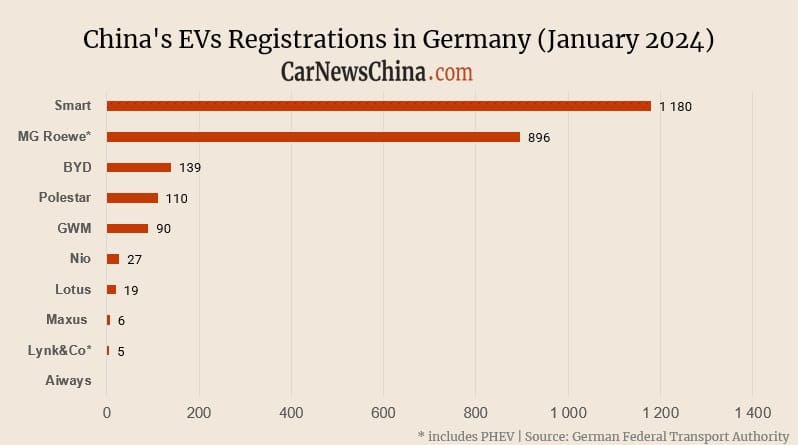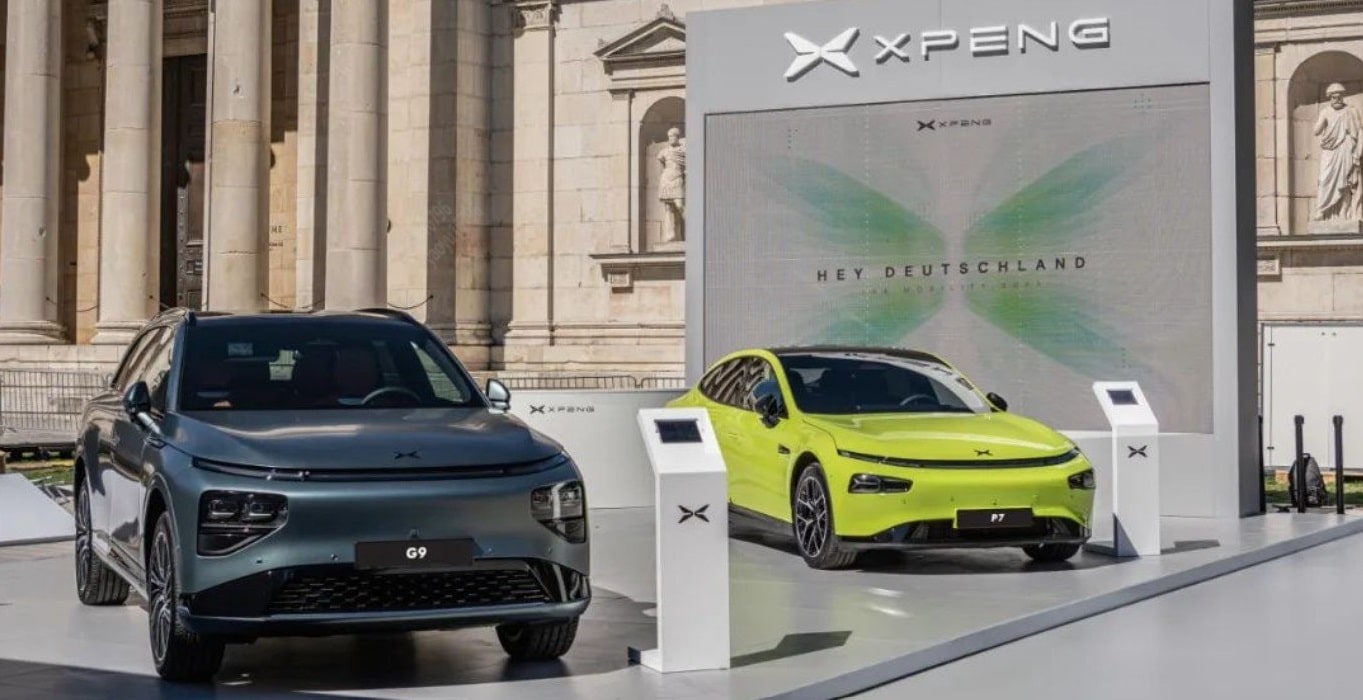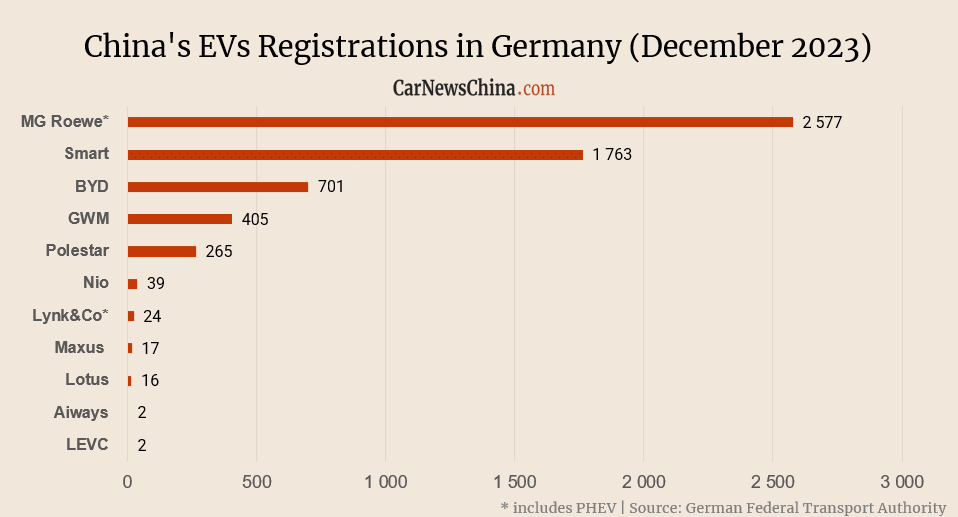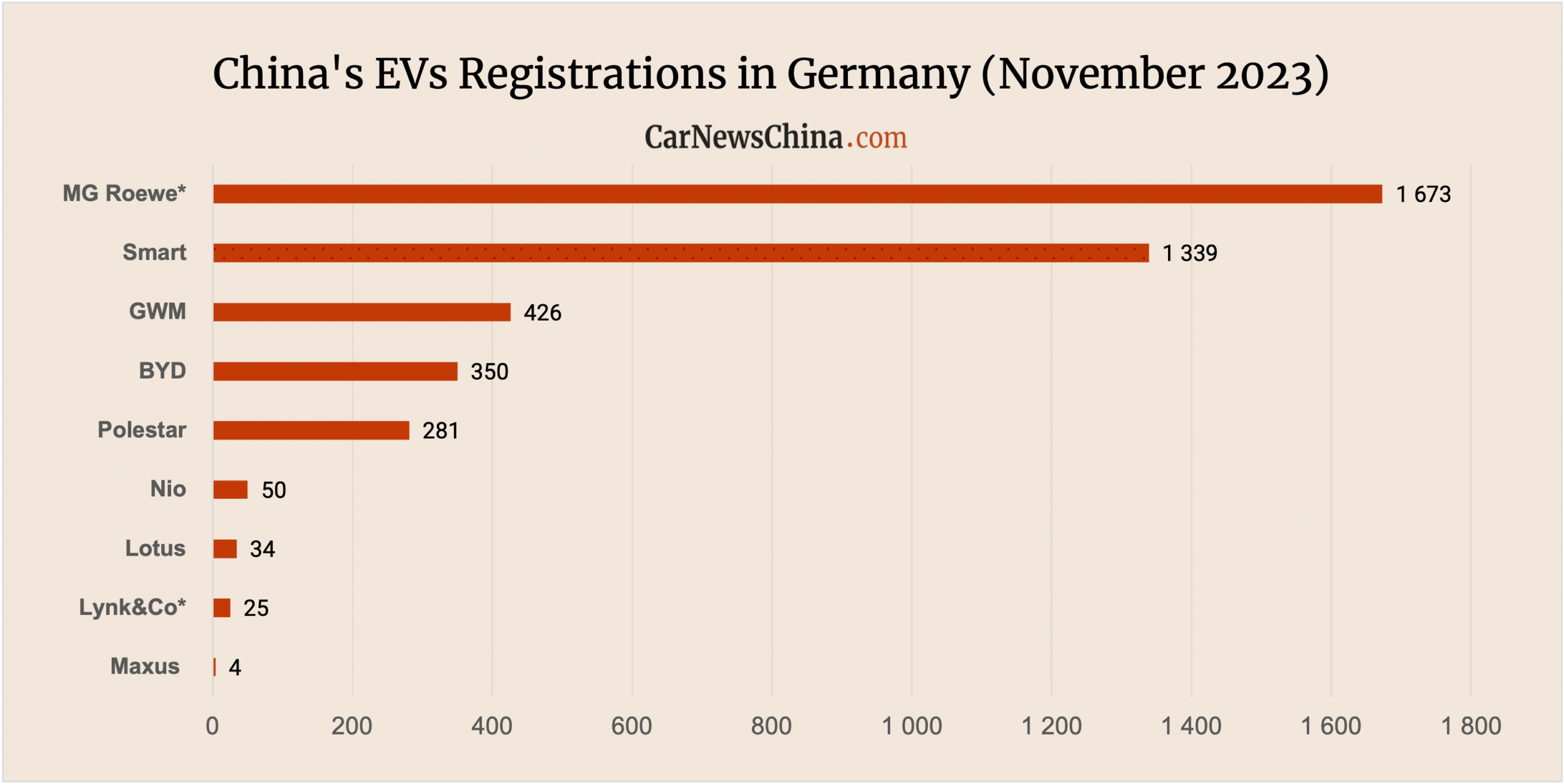In the first month of 2024, about 210,000 passenger cars were registered in the most significant European auto market, up almost 20% from last year. Smart registrations were up 62.5%, BYD 178%, and Nio 2,600%, compared with the previous year.
Battery electric vehicles (BEV) accounted for 10.5% of the market, translating into 22,747 registered units, up 23.9% from the last year. Plug-in hybrid vehicles (PHEV) accounted for 6.7% of the market, translating into 14,394 registered units, up 62.6% from the previous year. ICE vehicles accounted for 69.4%, which translates into 122,660 registered units.
The data are published by the German Federal Motor Authority (KBA) and track new car plate registrations in the country.
Smart replaced the MG on the top and got the first spot, registering 1,180 vehicles, up 62.5% from the same month the previous year and down 33% from 1,763 units the month before.
In 2023, Smart delivered 17,418 vehicles in Germany.
MG followed with 896 registered vehicles, up 85.5% from the last year and down 65% from 2,577 units the month before.
In 2023, MG delivered 21,232 vehicles in Germany.

The third spot goes to BYD, which registered 139 EVs, up 178% from 50 EVs in the same month the previous year and down 80% from 701 the month before.
In 2023, BYD delivered 4,139 EVs in Germany.
Polestar registered 110 EVs, down 28.6% from the last year and down 58% from 265 EVs the month before.
In 2023, Polestar sold 6,288 EVs in Germany.
The fifth spot goes to Great Wall Motor (GWM), which registered 90 EVs, up 4,400% from the same month the previous year and down 78% from 405 EVs the month before.
In 2023, GWM delivered 4,660 EVs in Germany.

Nio registered 26 EVs, up 2,600% from 1 EV in the same month last year and down 31% from 39 EVs the month before. Nio officially entered Germany in October 2022 and started deliveries a month later.
In 2023, Nio delivered 1,263 EVs in Germany. The cumulative deliveries since the market entry in 2022 are 1,788 units.
The German government had intended to offer EV subsidies until 2024. However, on December 16 last year, it announced, with immediate effect, ending all EV subsidies known as the country was facing a budget crisis. The program was initially supposed to continue until December 31 and then reduced subsidy until the end of 2024. Many automakers announced they would compensate for the 4,500 EUR subsidy, including Nio, Tesla, Mercedes-Benz, Stellantis and Volkswagen.




